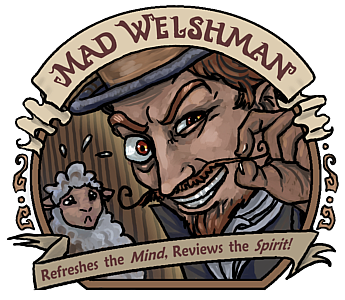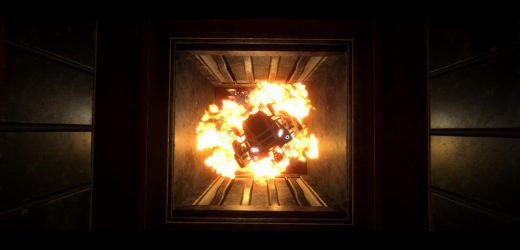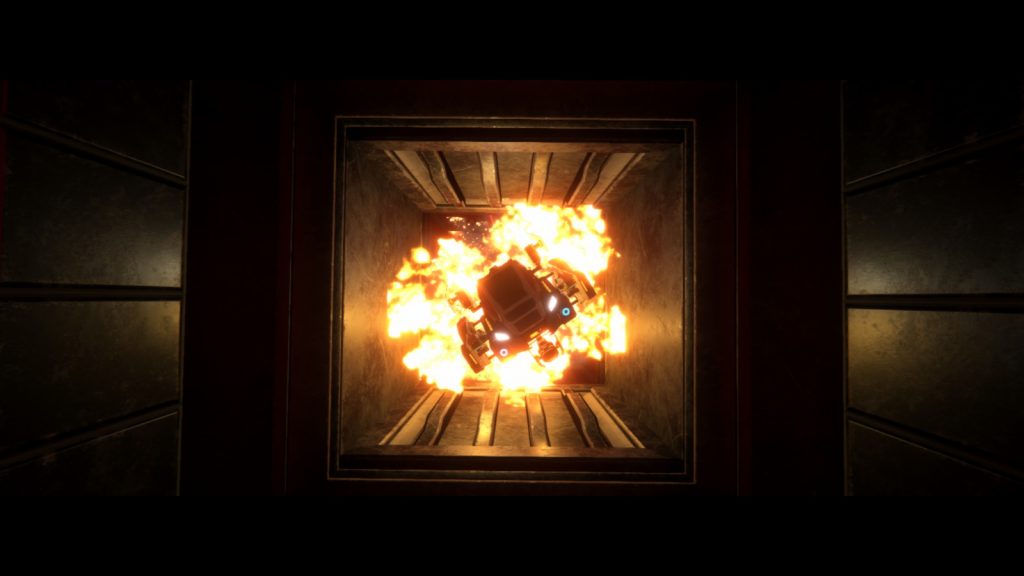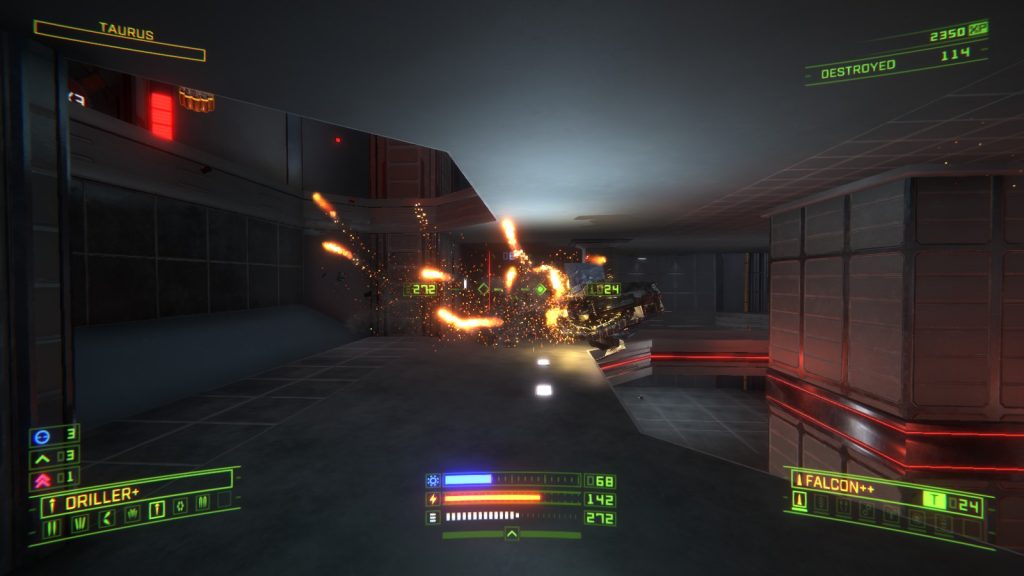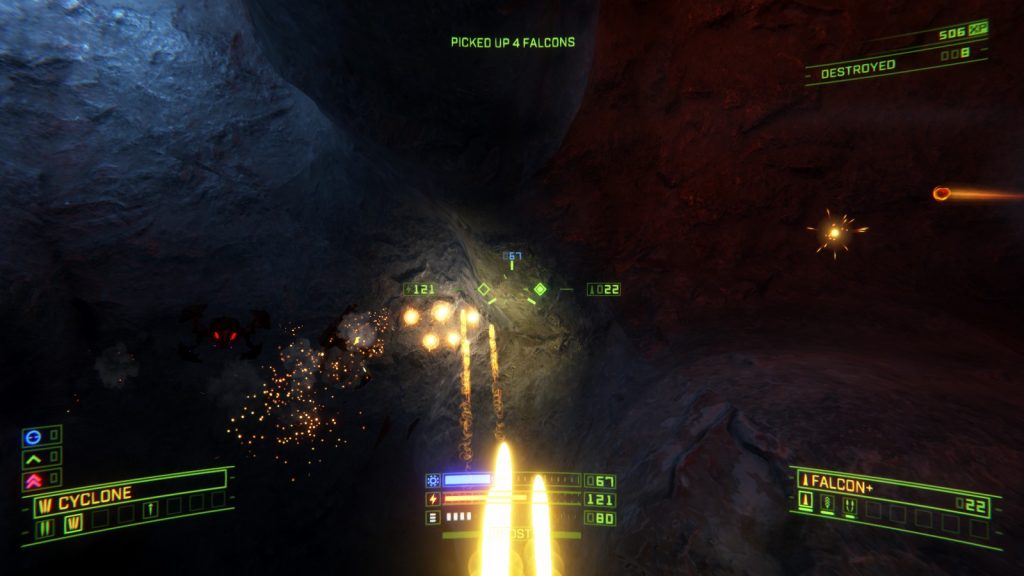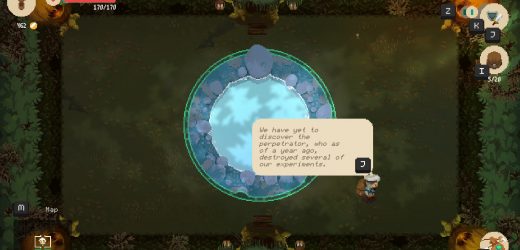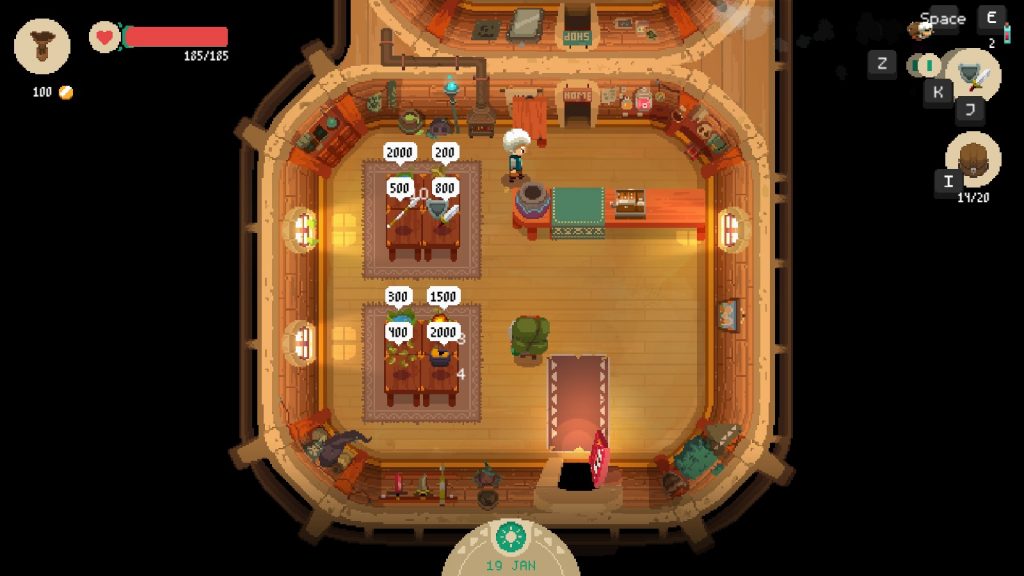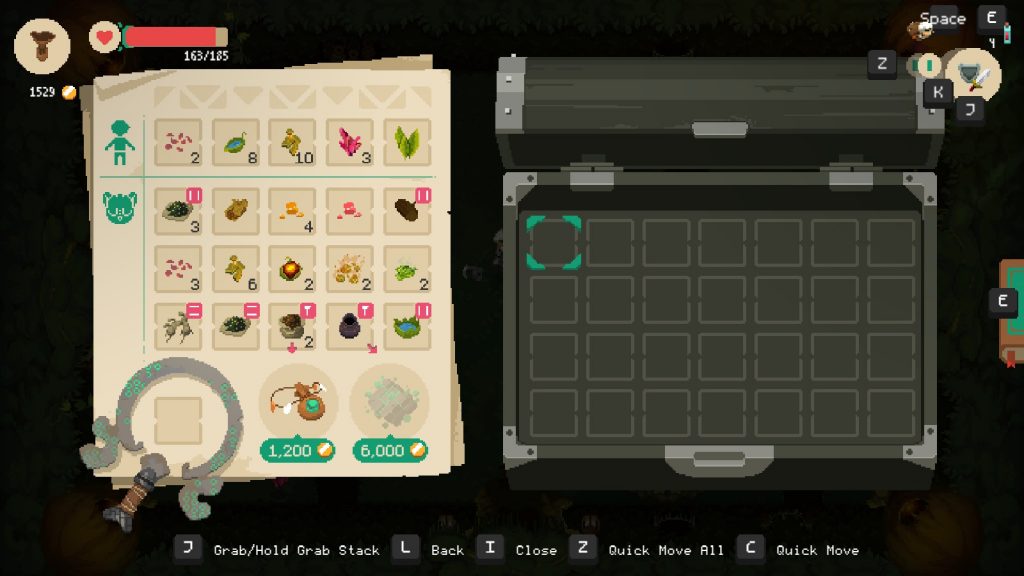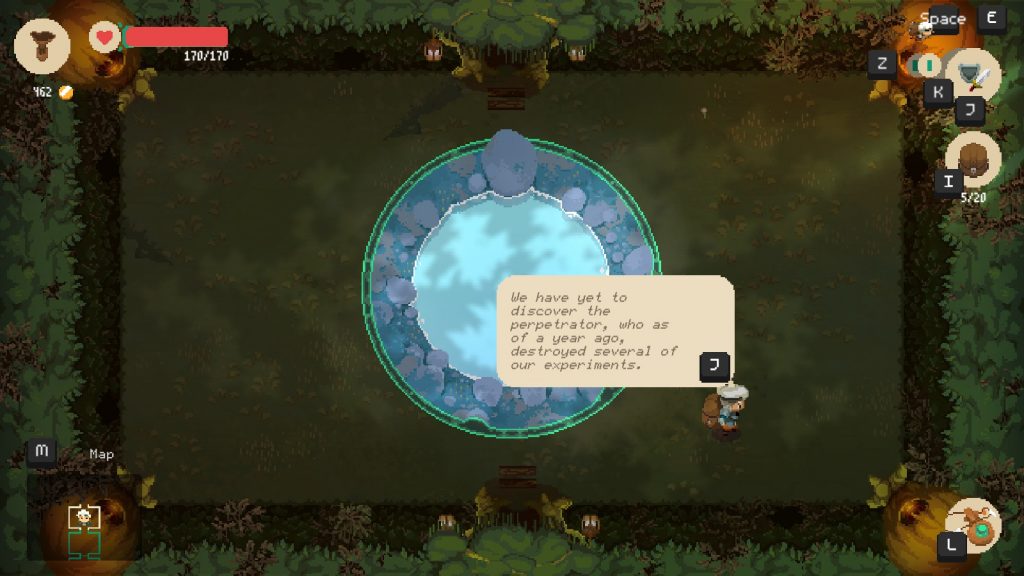Overland (Early Access Review)
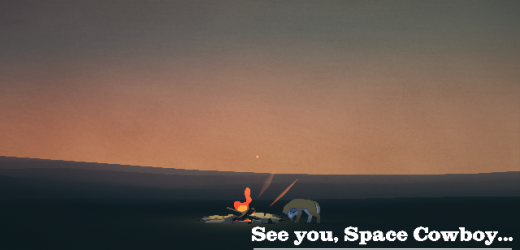
Source: Cashmoneys
Price: $20 or more (Approx £15 and some change)
Where To Get It: Itch.IO
Version Reviewed: Alpha 0.6, build 326
Other Reviews: Release
Rest in Peace, Meatball. You bit many a crystalline horror, and even if it was for nought, because the car had exploded, the whole place was on fire, and every human capable of driving you somewhere had died, you were a Good Pupper. And so ended a run of Overland, a roadtrip for survival in which you Go West. Why, beyond a reference to a good Village People song? Uncertain. Still, that’s what we’re doing.
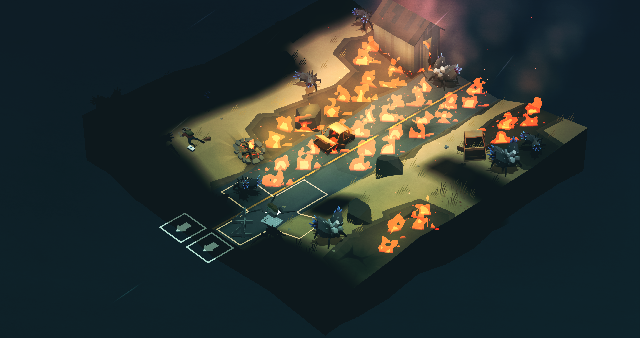
Definitely pictured: Everything Has Gone Wrong. Not Quite Clear: Meatball defiantly facing down a crystal creature he can’t possibly kill this turn. GOOD DOG.
Overland is a little tough to describe, because, while it uses some procedural generation, it also uses mostly pre-generated maps, so it isn’t quite a roguelike… And it isn’t quite a strict puzzle game… And while it’s about a roadtrip for survival, it isn’t a survival game. But it takes elements from all three. For example, the people you meet along the way are generated, given small histories, possibly items if they’re lucky, and skills. Even the dogs, who seem to have a choice between Barking… And Biting.
Let’s take a step back. Overland is a turn-based game in which you, a survivor of the invasion of crystalline aliens who hunt by sound, find other survivors, steal a car, and attempt to get from the East Coast of America to the West Coast of America, facing the aforementioned crystalline creatures, other survivors (not all of whom are friendly), roadblocks, and the ever present threat of running out of fuel (aka: A death sentence, considering the numbers of creatures involved here.)
“Wait, these things hunt by sound, aren’t you kind of screwed?”
Well, yes and no. On the one hand, you can take a little bit of a beating, although getting injured usually gives you only one action/move rather than the multiple ones you get, but, at the same time, most of the monsters currently in the game only get 1 move/action a turn, while uninjured survivors, generally, get two. As such, so long as you carefully consider what you’re doing, you can outrun most of the creatures currently in the game.

At the end of each area is a roadblock. As it turns out, setting fire to the squares around the cars I needed to pull out of the way was a Bad Idea.
Where the puzzle begins, however, is that very rarely are they alone, and killing them always has a chance of bringing more. Sometimes, it’s night, and you can’t see clearly (but, tracking by sound, they can see you just fine.) Sometimes, what you need is going to take time to get to, or get out of the way (Time you may not have.) Similarly, only being able to carry up to two items, with your vehicle having limited capacity for both survivors and spare equipment, adds a little depth and thought to this game, sometimes leading to cruel moments based on… Well, pragmatism.
Sorry, Steve. I have no medkits, we just found another survivor… I may see you later down the road, if you live that long.
Still, for all this interest, there are things that work for and against the game. Like the pre-generated maps. As noted, unless enemies are fast, or you’re trapped, getting around isn’t a major issue. What can be an issue, however, is that you know, the moment you reach the map, where the interaction points are, even at night. And some of them have drops best described as “Godawful.” Oh, crap, it’s that one map with the single shack that’s our sole point of interest here. Does it have fuel? It does, but not enough to keep us going. CRAP.
Items, similarly, are limited, and once you have, for example, at least one person with an extra action and a steel pipe, you might as well concentrate on fuel and avoidance, it isn’t going to get much better than this. Similarly, some of this limited item set feels… Very situational. Like the wooden pallet, used as a shield, which… Can knock a crystal monster back a step. No damage, and if it’s a runner? Well, that isn’t going to help a whole lot. I’m sure there are uses for it, but I’m having a hard time giving examples there.
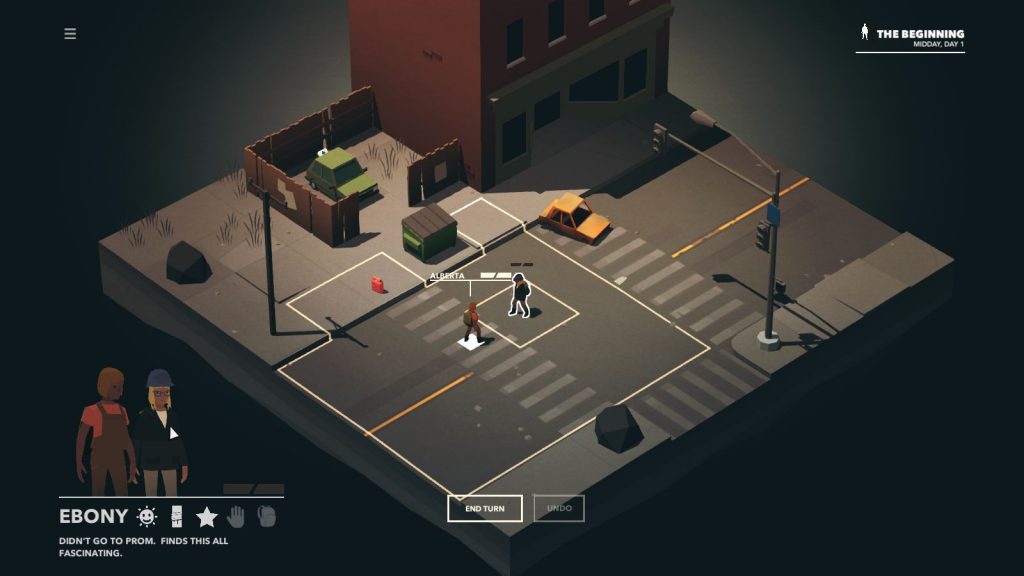
Funnily enough, this pair has halted all my progress on Overland until the next update. I don’t want them to go out there, you see…
Currently, three of the six areas in the game are here, with escalating difficulty and at least one new monster type an area, with nice touches to help those of us who like stories to construct a narrative around your characters () , an in-game screenshot option… Come to think of it, Overland has some extremely ScreenShot Let’s Play friendly features, although it does reveal that the game’s native resolution is 4K… Miiight want to adjust the screenshot size to the window size, Finji Games, as I’m pretty certain this breaks tables on most sites period…
It makes for a game which definitely has potential, is mostly pretty accessible, and has that low-key tension that makes for a good puzzler or survival game… It’s also a game which is still clearly a work in progress. Still, overall, I’m cautiously optimistic about Overland. G’bye Meatball, the Literal Disaster Bisexuals, and all the interesting folks along the way… I’ve no doubt I’ll see you all again in some form in later updates.
On Top of Spa-gheeeee-teee, all covered in cheeeeeese…
